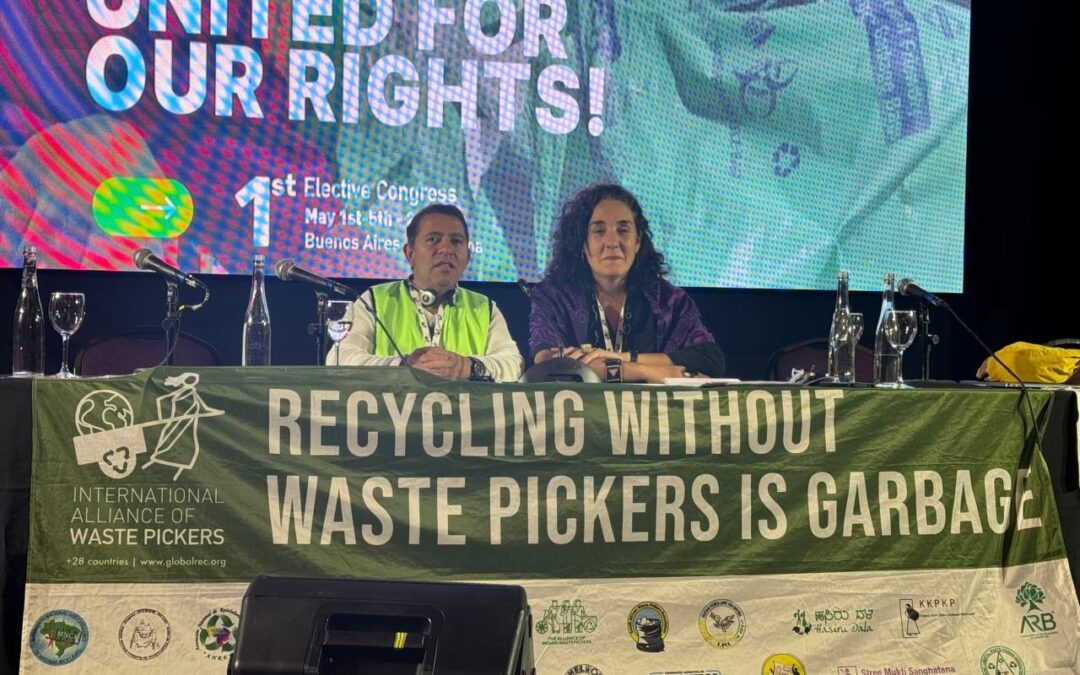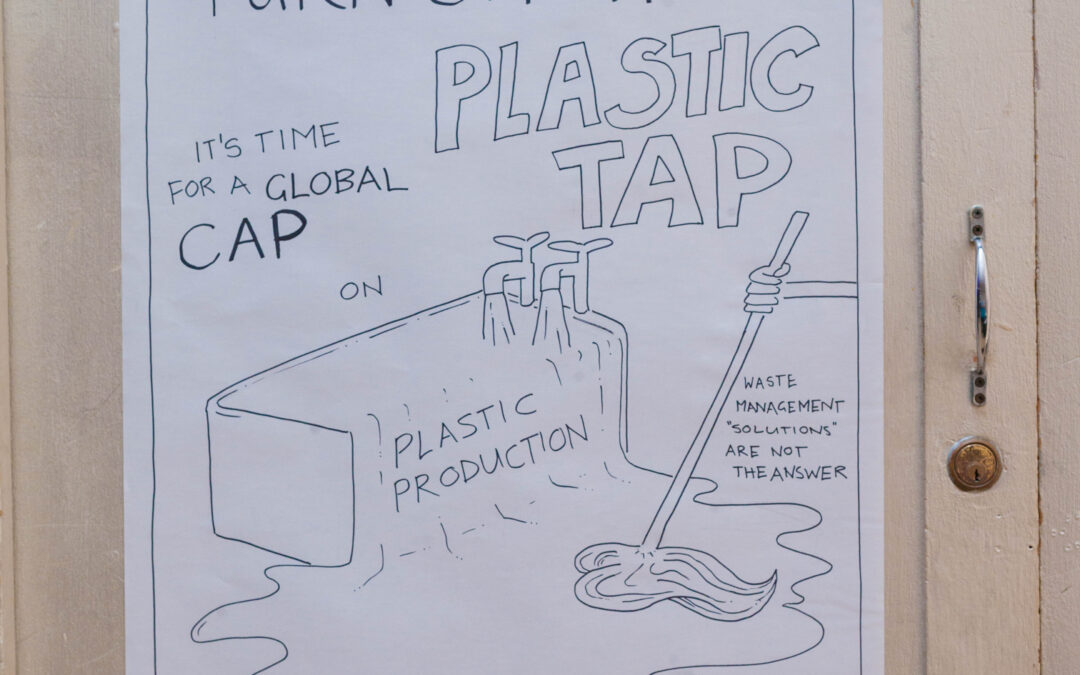
IMMEDIATE RELEASE
DATE: 10 May 2024
LAC Statement on Minister Creecy’s decision to grant Sasol’s MES appeal
The Life After Coal campaign, consisting of groundWork, Earthlife Africa and the Centre for Environmental Rights, as well as Vukani Environmental Justice Movement, the Vaal Environmental Justice Alliance and the South Durban Community Environmental Alliance, condemn the 5 April 2024 decision by the Minister of Forestry, Fisheries and Environment to allow Sasol further leniency in relation to its toxic air pollution. This will result in premature deaths and elevated illnesses in already heavily polluted areas of the Highveld and the Vaal, when compared with compliance with the minimum emission standards (MES).
The organisations also condemn the lack of transparency surrounding the Minister’s decision, and demand the immediate release of all expert reports and legal advice taken into account by the National Environmental Consultative and Advisory (NECA) Forum in making its recommendation to the Minister, and by the Minister in making her appeal decision.
- Sasol is a major polluter, emitting some 167 kilotonnes of sulphur dioxide (SO2) from its industrial processes every year. It emits several other dangerous pollutants and is a major contributor to the toxic air quality on the Mpumalanga Highveld, which has been held to violate the constitutional right to a healthy environment.
- It is well studied and documented that exposure to excess SO2 causes an increased risk of lower respiratory infections, increased risk of stroke, and increased risk of death from diabetes. Studies also show severe health impacts on children, the elderly, pregnant women, and those already suffering from asthma, heart, and lung disease. It is not controversial to state that Sasol’s SO2 pollution causes ill-health for many people living around and in the airsheds of its pollution.
- The MES promulgated in 2010 – after a multi-year consultative process which included major industrial emitters like Sasol – under the National Environmental Management: Air Quality Act – are intended to regulate activities that have a significantly detrimental impact on human health. While it is better to have legislated standards than not, it is also important to note that South Africa’s MES for various pollutants are weaker than those even in other developing countries: for instance, South Africa’s SO2 MES are approximately 10 times weaker than the equivalent standards in India and about 28 times weaker than the standards in China.
- Despite actively participating in the setting of the MES for the five years preceding their promulgation in 2010, Sasol has consistently acted to undermine these standards and to avoid MES compliance. Both it and Eskom initially sought to be completely exempt from the MES – which the then Minister refused. Sasol even launched court proceedings in 2014 seeking to set the majority of the MES, whilst its first application for postponement of MES compliance was pending. Once it obtained the postponement, it withdrew the litigation.
- In our view, 2018 amendments to the legislation which governs the MES made clear that only one postponement of so-called “new plant” MES is permitted, and that all facilities that have not been granted permission to be decommissioned by 31 March 2030 must comply with the new plant MES by 1 April 2025. The provision on which Sasol relied for its latest appeal and in terms of which it was granted “alternative limits” up to 31 March 2030 – 12A – was not the subject of public participation.
- Sasol’s latest appeal was against the decision of the Department of Forestry, Fisheries and the Environment’s National Air Quality Officer (NAQO) – which refused Sasol’s application for “alternative limits” for SO2 pollution from the 17 coal-fired boilers at its Secunda facility. Activist shareholder group Just Share opposed this appeal and provided expert evidence that MES compliance would reduce premature deaths and negative health impacts by 40-60%; whereas Sasol’s proposed limit – even by April 2030 – would only reduce these impacts by 5% compared to Sasol’s 2022-2023 emissions. Granting Sasol’s appeal will result in approximately 50-130% higher negative impacts than MES compliance.
- The Minister’s appeal decision was a clear indication that Sasol will leave no stone unturned to avoid incurring the costs associated with compliance with the health-based MES and a just transition.
- Despite all this, Sasol has continued to declare dividends to shareholders, with the last dividend declared as recently as February 2024.
- The Minister’s decision granting Sasol’s appeal bodes ill for her anticipated decision on Eskom’s MES appeals against the NAQO’s decisions refusing its applications for further postponements of MES compliance for 9 its coal power stations – a decision with even greater far-reaching implications for air quality on the Highveld.
- This compliance avoidance trend – through emitters repeatedly applying to postpone MES compliance and for weaker alternative emission limits, and DFFE granting this leniency – have contributed to a dire failure to improve air quality, and the erosion of air quality laws. Our High Court has held that the long-term poor air quality in a hotspot like the Highveld Priority Area (HPA) is a breach of people’s constitutional rights.
- This trend, which undermines hard-won air quality laws and the health of communities, is currently the subject of a challenge brought by the Vaal Environmental Justice Alliance and groundWork at the Pretoria High Court. The applicants have asked the High Court to review the NAQO’s March 2020 decision to grant steel company ArcelorMittal South Africa postponement of MES compliance, and to allow it “alternative limits” for its hydrogen sulphide (H2S) emissions, significantly weaker even than the outdated 2015 MES.
- More broadly, government’s continued buckling to industry pressure to grant companies leniency in relation to air pollution, creates real doubt about its commitment to holding South Africa’s major GHG emitters – with Sasol and Eskom at the top of that list – accountable for their GHG emissions. This view is reinforced by the fact that the soon-to-be-promulgated Climate Change Act contains no penalty whatsoever for the failure by companies to comply with their “carbon budgets”.
In summary:
- We condemn the Minister’s decision to grant Sasol further leniency in relation to its SO2 pollution.
- We demand that all of the Minister and NAQO’s decisions protect the health and wellbeing of those that are impacted by industrial air pollution, and we condemn decisions which weaken air quality laws and constitutional rights, including granting repeated or indefinite postponements and alternative limits.
- We also demand that the Minister release all the reports and legal advice she and the NECA Forum relied on, in order to enable affected people and the organisations that support them to make informed decisions about their rights, and the legal remedies available to them.
- In particular, we demand the immediate release to the public of:
- The SO2 panel report, which we understand was finalised in 2021, and which has been withheld from the public for almost three years.
- The legal opinion of Prof Halton Cheadle which is referenced in the appeal decision.
- The report of the NECA Forum on which the Minister relied in making her appeal decision.
- We also call on the investors who continue to profit from Sasol’s pollution to reflect on the harm they are inflicting on many thousands of people, and to exert pressure on the company’s management to bring Sasol into compliance with pollution standards. These standards are a bare minimum for what companies should meet to be allowed to operate. Instead, Sasol’s continued non-compliance over decades renders their stated intent and commitment to comply, a forever journey of fantasy. In truth, their deceptive lack of accountability reveals a belligerent valuing of profit over people’s health and lives, in direct violation of section 24 of the Constitution.
- Our call extends to the Public Investment Corporation, which invests and manages the pension savings of government employees, and which is the single biggest investor in Sasol.
- We continue to question Sasol’s contention that it is not “feasible” to implement the pollution control measures to meet the SO2 new plant MES, despite it already having been made twice as lenient as when it was published in 2010.. In January 2020, Sasol expressed the view that 1000 mg/Nm3 for SO2 MES was a “reasonable” standard which Sasol could achieve with “significant effort.” The appeal decision also points out that the NECA Forum accepted and agreed with Just Share’s submission that generally coal beneficiation is a good option for a plant that seeks to achieve compliance with the SO2 MES and that there are numerous benefits associated with it.
Quotes:
“If the Minister’s decision is allowed to stand, it will be a slap in the face of the people living around and in the airsheds of its pollution, whom our government is meant to protect,” says Desmond D’Sa of the South Durban Community Environmental Alliance (SDCEA)
“South Africa has weak minimum emission standards, even compared to other developing countries. These standards are there to protect people’s health. The very least people exposed to the pollution from industrial operations ask is that corporations operating in South Africa comply with these standards – no exceptions. Instead, one of our biggest polluters, Sasol, is simply let off the hook, Michelle Koyama, CER Pollution and Climate Change Attorney.
Quote: “South Africa’s emission standards are notoriously weak, even in comparison to other developing countries. These toxic emissions will continue to exacerbate devastating health impacts for communities living close to Sasol and create a public health disaster,” says Mafoko Phomane, Senior Environmental Health Campaigner and public health specialist at groundWork.
Quote: “On its website, Sasol refers to their “SO2 compliance journey”. We have heard about Sasol’s compliance journey for decades. It appears that this “journey” is never-ending, and that it has no intention of ever reaching compliance” Promise Mabilo, Coordinator at Vukani Environmental Justice Movement in Action.
Notes:
The Life After Coal campaign has a strong track record of challenging government decisions that threaten the rights of people exposed to industrial air pollution.
Over the past 12 years, the campaign and its partners have opposed multiple applications by polluters for air pollution-related leniency and filed multiple administrative appeals against decisions granting this leniency. In 2020, groundWork, represented by the Centre for Environmental Rights, brought a court application to challenge the doubling of the SO2 MES standard without consultation. (See the detailed objection lodged by the Life After Coal campaign against the doubling of the standard, with evidence of health impacts.)
In 2022, Vukani Environmental Justice Movement and groundWork successfully brought an application to declare the poor quality on the Mpumalanga Highveld a violation of section 24 of the Constitution.
In 2023, the Vaal Environmental Justice Alliance and groundWork instituted a review application at the Pretoria High Court, to set aside the DFFE’s decision to grant AMSA postponement to comply with the MES and to grant very weak “alternative” emission limits in relation to its hydrogen sulphide pollution.
END



